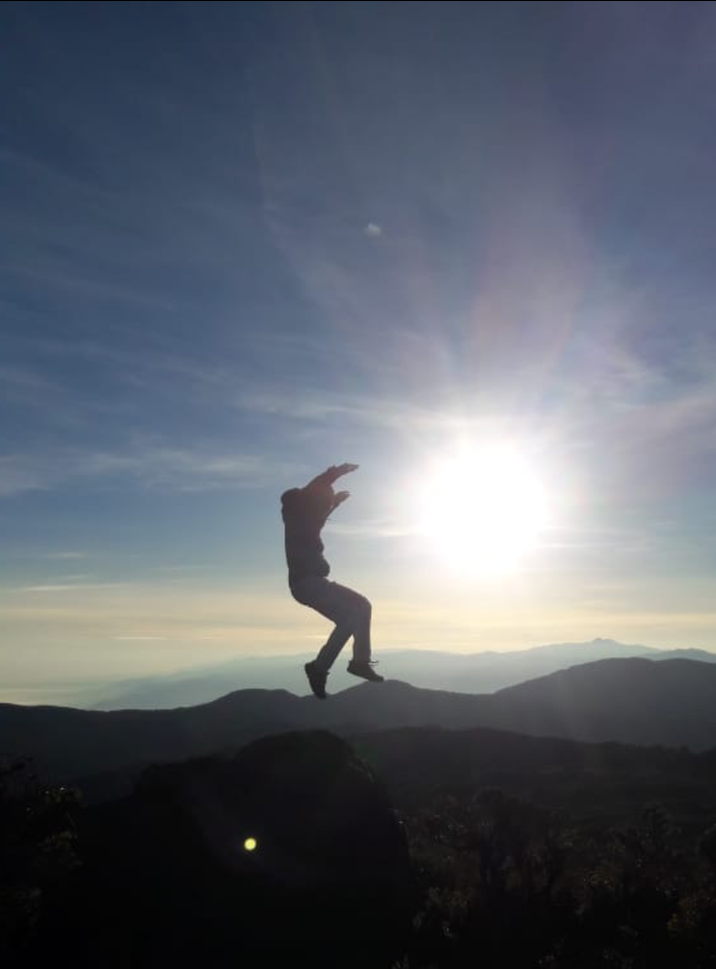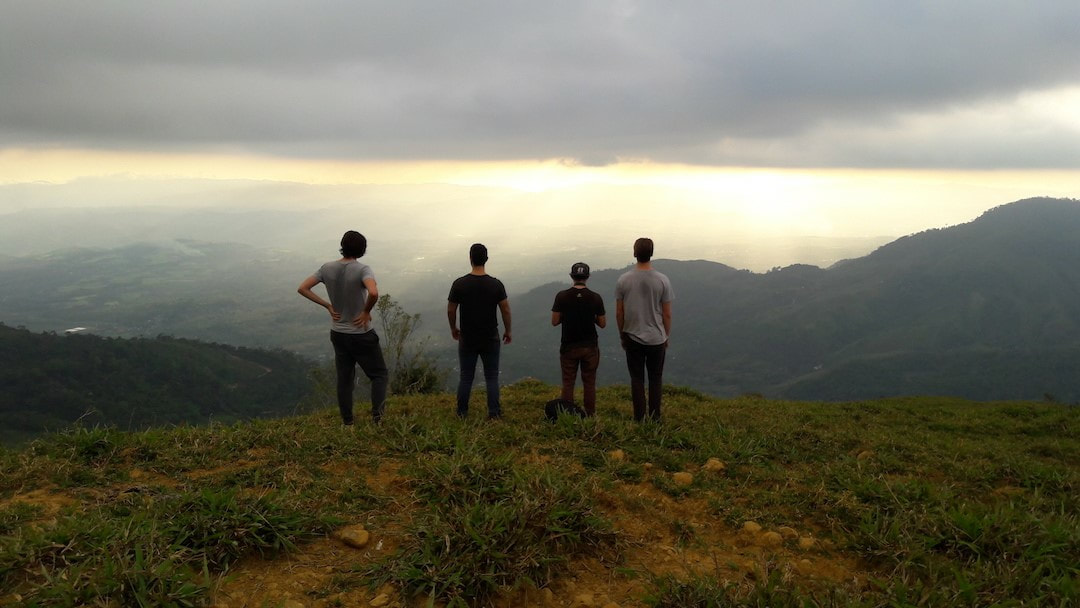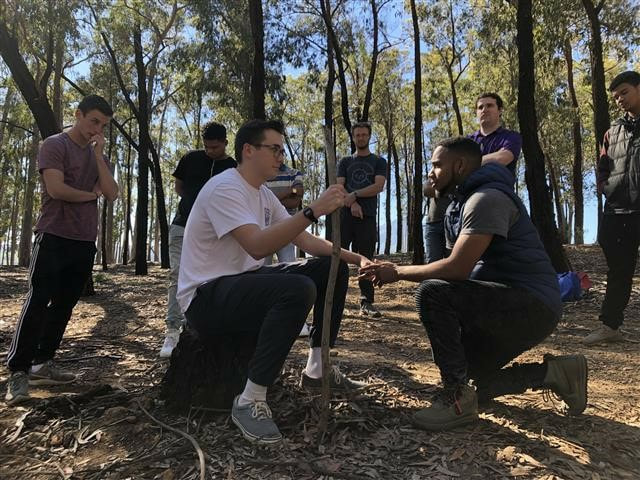|
We touched base with our program graduates from the first semester of 2018 to find out how they feel they are doing. We wanted to know about their current main goal or goals, and how successful they feel at accomplishing those. For us, success is defined by people’s ability to integrate life lessons, so they are increasingly more effective at problem-solving and meeting their goals. This is why we don’t define success by their grades in college (or even if they are in college at all) or how low their score is on a measure of depression. Those are all important, but we can see better how they are practicing integrative learning when they are improving their capacity to reach their own goals. The above numbers are in response to the question: to what degree do you feel you were accomplishing your goals before coming to The Bridge, and how do you feel about that now, after The Bridge. Their averages show, as you can see, a perceived 53% improvement in their ability to accomplish their goals. Since it is their goals that we are talking about, and not an external measure of success, it makes sense to wonder if these are goals that seem overall positive. Perhaps you’re eager to hear a bit more about these wonderful people? Here are few quotes that stood out to me from speaking with them:
“I was relying on other people to do the learning for me. Unless I was pushed, I would just sit there, stuck; I wasn’t applying myself. It’s drastically different now, worlds apart.” “Before The Bridge, a lot of the time I’d sit in a ditch when things got hard, because it was comfortable. Now I see that as a waste, I don’t feel comfortable, and soon as I become aware I’m headed toward the ditch, I bounce back. I’d get this fear that I wouldn’t accomplish anything and then get in that cycle, but now I use the fear to motivate me.” “Work ethic has definitely improved! Also, general life’s knowledge; understanding how life works. I deal with parts of life that I don’t like. I’m better at taking life as it is.” “I’ve been sober for 19 months, and don’t see myself doing that anytime soon. Things may not go well sometimes but they would not be solved by doing drugs.” (when things get difficult) “It helps me to do tangible things: doing homework, ride my bike, work out, meditation, yoga. I’ve gotten better at just getting up and doing something. The Bridge taught me that. It might not make you feel good right away, but at least you can say you tried to do something about it.” What stands out to me from these comments is that life hasn’t necessarily become easier, but that they feel better equipped to deal with it. Through their experience at The Bridge, these young men learned their own unique way of problem-solving and that has drastically impacted their life positively. What stands out too you?
0 Comments
Have you stopped to think how much of what you appreciate and desire depends on your perspective? Last year, during The Bridge’s 2-week project in South Africa, we were hiking in the beautiful mountains around Cape Town. Arnold, the program director of a friend organization, Usiko, and I were walking together. They work with at-risk youth from underprivileged suburban areas of Cape Town. I stopped for a moment to take in the view, and asked him if he brought his students often to this area. He said yes, and I told him how important it is to expose people to beauty. He agreed, but proceeded to tell me something that has stuck with me. He said that many of his students could not perceive the beauty; they could see it, but couldn’t really appreciate it. This made me think that appreciation requires education, or else it is not exercised. Every single day, almost all the time, we presence marvelous events. Wonderful feats of human creativity, such as buildings and cars. Incredible skies and natural beauty. People with unique perspectives to delve into and connect with. But it seems like unless we create a container to take it in and appreciate it, it flows right past us like water in a stream. Educating ourselves and others in the valuable practice of appreciation is not complicated. It just needs practice. You don’t need college degrees, money or higher levels of consciousness. By taking a moment and asking ourselves: what is unique in what I’m experiencing? What would this experience be if the sky was just gray as opposed to blue? What would life be if there was no diversity in perspectives and cultures? What am I taking for granted now that I would miss if it wasn’t here? And just like appreciation requires education, what we desire is a product of such education, and often goes unnoticed as well. Of course we have basic needs, like food, shelter and belonging; and meeting those needs are part of our desires. However, a simple hut and a mansion are both shelter, just like we can find belonging by being part of a sports team or by posting lots of pictures on social media. Being thoughtful of what we desire is essential, as many people around us want us to desire something they have, like their products, substances, or their acceptance. If we are not intentional and mindful of what we desire we can end spending a lot of energy and time (in some cases a lifetime) pursuing a desire that doesn’t fulfill us or maybe isn’t our desire to begin with. Huts, mansions, sports teams and social media are all fine if they are truly satisfying our deeper needs; otherwise they may become a distraction or an obstacle, and ultimately lead to frustration and disappointment.
A few simple skills really help educate our appreciation and desire: 1. Awareness: keeping our senses awake to subtleties we might not typically realize. Is there beauty around me I have been taking in? What need am I trying to fulfill by binge-watching Netflix? 2. Flexibility: we shift our perspective, acknowledge the needs we are trying to fulfill, and find alternative ways to meet them. This way, we disentangle our expectations from what the situation actually offers. Instead of waiting for my friends to call, could I just sit back and hang out with my siblings for the night? 3. Ordinariness: more often than not, reality is plenty fine, and contains enough to appreciate and to meet our needs. It’s important to reclaim our own ability to shift the way we perceive what we need and appreciate. It’s not easy, it requires a lot practice, education and more often than not, re-education. But it’s completely possible! And what’s more, we can influence, and therefore educate other people as well, just by sharing our perspectives on what we appreciate and realize we truly need. |
Categories
All
Archives
April 2024
|




 RSS Feed
RSS Feed